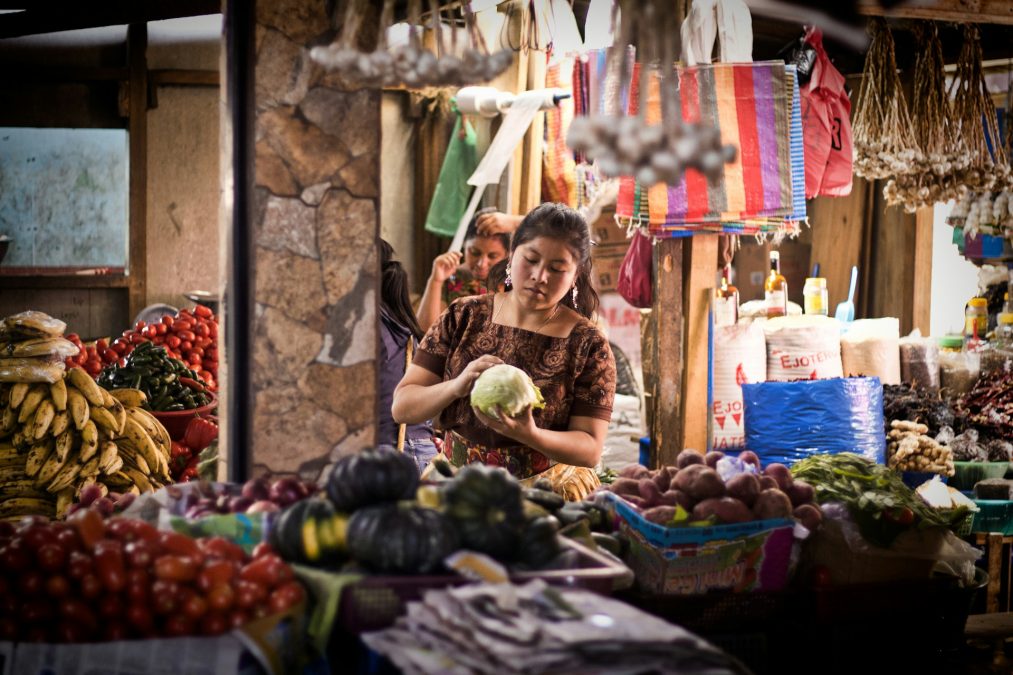For many years, Brazil’s National Council for Food and Nutrition Security (CONSEA) has been campaigning for resilient food systems, alleviating hunger and poverty as well as for the right to food – with success. The council’s president, Elisabetta Recine, shares insights into building resilient food systems, remaining challenges and the power of participation.
Rural 21 (R21): Ms Recine, what are the biggest shortcomings of agri-food systems in Brazil?
Elisabetta Recine (ER): Brazil is known for its agricultural and livestock production capacity, and practically every year, harvest records are announced. However, an important share of this production has a very high environmental cost, either due to the advance of the agricultural frontier in biomes that should be protected or due to dependence on chemical inputs and petroleum derivatives. Part of this fragility comes from producers who still resist changing the production model, recognise the need to diversify production towards sustainable models and finally adopt an environmental but also social agenda. The wealth produced by Brazilian agribusiness is not distributed fairly.
R21: What is the situation of small farmers like?
ER: Most Brazilian farmers are small and medium-sized, but they have the lowest percentage of land and also face challenges in accessing finance and markets. On the other hand, the results of the agricultural census indicated that it is small farmers who are responsible for the greatest variety of food that the population has access to. Since the beginning of 2023, a series of public policies that had been interrupted have been resumed for financing family farming, support for women farmers, public procurement, technical assistance, agroecological transition and other areas. It is expected that with these initiatives it will be possible to reverse the loss of acreage of staple foods such as beans.
R21: Why is acreage diminishing?
ER: The production of commodities is advancing on land that was previously used to grow basic products, and also due to the lack of a pricing policy, basic products are not competitive and producers prefer to grow what can generate more income.

R21: What do you regard as the greatest successes regarding achieving the right to food in Brazil?
ER: School meals are an important achievement. Part of the food for this purpose is bought from smallholders. Since 2009, the local communities have had to spend at least 30 per cent of the funding they receive on school meals for public purchases from family farming. This amounts to 42 million euros, which benefits the local producers each year. However, the procurement of food for public policies from family farming is broader than just for school meals. It currently covers all public services that provide meals. Public purchases allow family farming to have a guaranteed market, organise its production and expand its reach. This type of initiative has a great impact on generating and strengthening the local economy, reducing poverty and structuring small-scale production. It is important to mention that all this has been inspired by experiences from civil society organisations and movements. Establishing the fight against hunger and poverty as a political priority in 2003 was paving the way for the development of legal instruments that would ensure the continuity of policies and programmes targeting the poor.
R21: What support do smallholders in Brazil need?
ER: Our goal is resilient and sustainable food systems. One important aspect here is bringing production and consumption together. Regarding the production side, we want to make sure that small farmers and pastoralists have the right set of tools, so that they can stay on their land and continue to farm it. Land titles are still unequally distributed in Brazil. To support small farmers, it’s essential to guarantee production financing, technical assistance and access to markets. Specific actions are also needed to support peasant women and young people. In Brazil, it is also a priority to protect and strengthen the traditional food systems of indigenous peoples and traditional communities. All these actions have a common element, which is the protection and recovery of the socio-biodiversity of the different Brazilian biomes.
R21: What would you describe as the work of the Council’s greatest strength?
ER: Participation! We try to get a wide range of actors together so that they can speak with one voice. And we have cross-sector cooperation. Twenty-four ministries are confronted with civil society demands and are acting in concert. What is crucial is the political recognition of the agenda’s significance for development and the reduction of inequalities in the country. The commitment of its members, the diversity and representativeness of the different sectors of Brazilian society, the quality of its proposals, which are based on good practices and an excellent scientific foundation – all of these are our success factors.
R21: Has anything changed with the recent elections in Brazil?
ER: Tackling hunger and inequality are once again among the government’s priorities. This announcement raises the expectation that public policies will be redirected towards reducing inequalities by tackling racism, gender and income inequalities and access to land and territory. Considering the economic, social and political structure, this is a major challenge that will require a long-term commitment and permanent mobilisation of the sectors that defend the common good. Brazilian society as a whole needs to recognise that inequalities affect not only the people who suffer the direct consequences but the whole country and our future. In relation to food sovereignty and food and nutrition security, it is expected that the engagement of the different sectors of government that have responsibility for this agenda will be broad and that they will make common commitments to articulate programmes and define priorities and common goals.
R21: What major challenges are there?
ER: We must transform our food systems towards sustainability. This includes strengthening the agro-ecological transition, fostering territorial markets and guaranteeing physical and financial access to healthy food for all people, especially the most vulnerable communities. Moreover, the rural-urban nexus needs to be much more articulated and closer. Cities also need to recognise that the issue of food needs to be included in urban planning. Food supply needs to be a public policy issue to guarantee physical and financial access to healthy food in all communities. The element that runs through all actions is tackling the climate crisis – from the seed to after the plate all initiatives and actions must contribute to this purpose.
R21: In a nutshell, what is at the heart of resilient food systems?
ER: Diversity! A system that is uniform is not resilient. Life is only sustainable when it is diverse.



